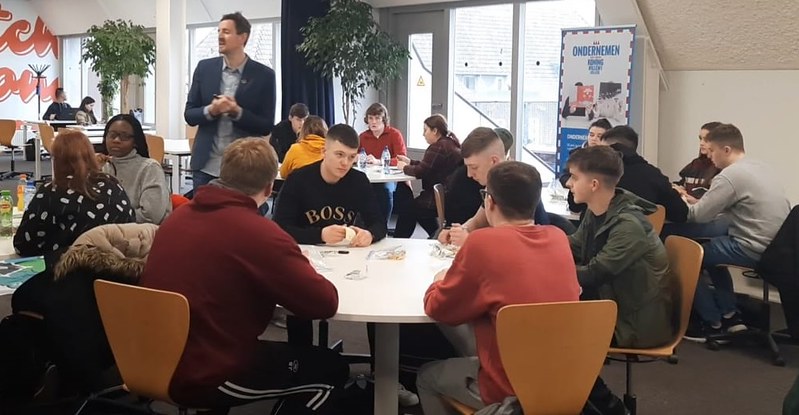
Students gain skills while supporting social enterprises
The ICE with GRIT programme has brought real-life business experiences to vocational education and training students at Belfast Metropolitan College by harnessing the social enterprise communities in Northern Ireland and the Netherlands.
The project, which began in 2017 and backed by a €186,000 Erasmus+ grant, tackled long-standing local skills, economic development, and social inclusion problems by allowing students to work on challenges faced by organisations such as the NSPCC.
As well as improving their confidence and problem-solving skills locally, students also visited Konig Willhelm College in Hertogenbosch to learn from the Dutch experience.
Connecting social entrepreneurs with college students
The needs of social enterprises presented a unique opportunity to both develop students and improve local economic conditions.
“We identified that resilience, confidence and independence were key for students,” said Glen McMahon, the International Manager for Belfast Met.
“ICE with GRIT allowed the voluntary sector and social enterprises in Northern Ireland to connect with us and come to the college with projects that they cannot afford employees to solve.
“This allowed our students to get real-life experience without disrupting the curriculum, or the industry.”
The social enterprise experiences allowed students to obtain work opportunities with local blue-chip employers such as Citibank, an organisation that traditionally only employs graduates.
What did the Belfast Metropolitan College students gain?

“They learnt problem-solving skills by solving the challenges the social enterprises put forward. For example, the students have reviewed websites for a social enterprise that couldn’t afford to use a marketing company.
“I think our young people are going to be more prepared. Their confidence has increased. It has given them an appetite to get up and enjoy life and go and see something,” said Glen.
The college worked with awarding bodies including Edexcel Pearson and the Education and Training Inspectorate for Northern Ireland to create a focused qualification for students.
“We chose to do this in-house rather than use an external company. Our students come to us at a lower level. We want to hold on to them and get them into level 5 qualifications,” added Glen.
Lessons learnt during Erasmus+ exchange visits
During the visit to the Netherlands, the social enterprise partners of Konig Wilhelm College met with the visiting students and lecturers.
Studying the links the college had with their local social enterprises enabled Belfast Met to forge better links with their own local third-sector employers.
“We wanted to know why the colleges in the Netherlands connected so well to social enterprise. A strong output of the project has been our work with a local hospice and the NSPCC. The curriculum area manager was able to look at the Dutch format, understand it and implement it in our college,” said Glen.

“We have had ten teachers and lecturers involved. They have realised it’s not a hassle. It can open your mind. You realise that the other lecturers face the same challenges you face. Talking through things together creates a collaboration space.”
The benefits for Belfast Met
Glen feels that ICE with GRIT has enhanced the curriculum offer and reputation of Belfast Met.
“Colleges used to be places where you went if you didn’t get the grades to continue the academic route. Now, we are the number one choice for Cyber Security in Northern Ireland. For general business, IT and financial services we are arguably the number one college in the UK outside of London.
“The reason we are at the table today is because of internationalisation. Erasmus+ is making Belfast Met an attractive place to study.”
Read more Erasmus+ VET stories by visiting our theme-specific webpage!
